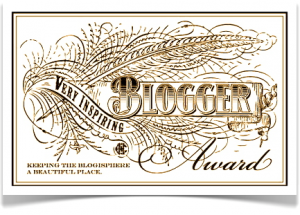Years ago, I was sitting alongside other budding novelists in an ongoing writing class, rapt attention on the much-revered teacher. She asked each of us to share what our novels-in-progress were about. Trying to the keep the shakiness out of my voice, I said, “It’s about what happens when a woman with severe anxiety reconnects with a childhood friend who is now homeless.” She nodded and moved on to the next student.
When everyone had answered, she drew in an audible breath then exhaled with the kind of emphasis she reserved for her most astute of advice. “You can’t write a whole novel about anxiety,” she said, not looking at me. But I stared straight at her, wondering where my otherwise supportive teacher was coming from.
When I shuffled out with a fellow student for break, I asked her what she thought this meant. She shrugged her shoulders, saying that she’s known a lot of people who become annoyed—even hostile—when people around them are suffering from the torment of anxiety. I nodded, knowing that my friend was right. Then, instead of going back to class, I pulled my keys from my purse and zoomed out the parking lot. As soon as I got home, I went right back to work.
JESSICA DRENK “IMPLEMENT 8″
Why did this teacher’s claim that you can’t write a novel about anxiety spur me on even more than before? Because I finally got it: we’re all scared. And those people who are most irritated by other’s fears and anxieties, are the ones who may be just as fearful—if not more so—than every other human being.
Of course, the anxiety that comes with being human also comes in degrees. Some happy-go-lucky types only have to deal with worry due to real-life circumstances; others suffer from unrelenting dread, no matter what’s happening on the outside surface of their lives. But no matter the degrees, I know that as a reader, I’m able to relate to the characters in novels with wholly different—and more times than not—way bigger problems and issues than myself.
My intent in writing The Grace of Crows was to present readers with a heroines journey that would help them feel less alone with their anxieties and irrational fears, as well as let them know that there’s hope. Purposely crafting it with the goal that it would become the kind of novel I would have wanted to read when I had been stuck in the darkest years of my own anxiety, I’m pleased to say that total strangers have shared with me how they’ve related to the protagonist’s struggles.
Sure, I know that a great number of wonderful nonfiction books on anxiety have aided others as well as myself, but I’ve always known that reading fiction is also healing. By creating a sense of stepping into a hero/heroines world and taking that journey alongside him or her, a reader can feel a sense of connection and confidence. It is what is referred to as bibliotherapy, a term first coined by Presbyterian minister Samuel M. Crothers in 1916, who combined the Greek words for therapy and books. Bibliotherapy—whether it is given this title or not in practice—has been used by therapists, librarians, and nurses for many years and in many environments (for example, during the First World War, librarians and nurses used reading to encourage both physical and emotional recovery for soldiers).
And now science confirms the healing power of a good novel. In a recent study at Emory University, the lead author and neuroscientist, Professor Gregory Berns is quoted in the university’s eScienceCommons blog: “The neural changes that we found associated with physical sensation and movement systems suggest that reading a novel can transport you into the body of the protagonist.”
And there you have it. It’s not only possible for an author to write a “whole novel about anxiety,” it’s just as possible for readers to further their own healing journey by cracking open a novel.
Tracy Shawn
Tracy Shawn lives and writes on the Central Coast of California. Her educational background includes a master’s degree in clinical psychology. Her award-winning debut novel, The Grace of Crows, is about how an anxiety-ridden woman finds happiness through the most unexpected of ways—and characters. Dubbed a “stunning debut novel” by top 50 Hall of Fame reviewer, Grady Harp, The Grace of Crows has also been hailed as an accurate portrayal of generalized anxiety disorder and a healing opportunity to the reader by Anne Diamond, MS, LMFT.













